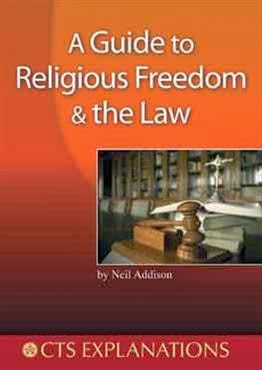The Court of Appeal has issued its judgment in the case of Eweida v British Airways [2010] EWCA Civ 80 where they said that prohibiting a Christian British Airways worker from wearing a small cross round her neck was not constitute Religious Discrimination.
I hate to jump on the usual "unfair to Christians" line but I do have to say that I find the Court of Appeals decision completely impossible to reconcile with the High Court decision in Sakira Singh [2008] EWHC 1865 (Admin) where it was held that prohibiting a Sikh School girl from wearing a "Kara" bracelet was religious discrimination. What, I ask myself is the difference between a religious cross around the neck and a religious bracelet on the wrist.
In the Eweida case the Court of Appeal attached importance to the fact that the majority of Christians did not regard it as a "requirement" of their faith to wear a cross. Leaving aside the point that this type of distinction is itself discriminatory it is also contrary to the finding sin the Sakira Singh case where the Judge said in para 29
"although the claimant is not obliged by her religion to wear a Kara, it is clearly in her case extremely important indication of her faith"
which is exactly what any Christian would say about wearing a Cross
I am also extremely concerned by para 40 of the Eweida Judgment where Lord Justice Sedley said
"This case has perhaps illustrated some of the problems which can arise when an individual (or equally a group) asserts that a provision, criterion or practice adopted by an employer conflicts with beliefs which they hold but which may not only not be shared but may be opposed by others in the workforce. It is not unthinkable that a blanket ban may sometimes be the only fair solution."
This aspect of the judgment ignores what Baroness Hale said in para 96 of the case of Begum [2006] UKHL 15
" If a woman freely chooses to adopt a way of life for herself, it is not for others, including other women who have chosen differently, to criticise or prevent her. Judge Tulkens, in Sahin v Turkey, at p 46, draws the analogy with freedom of speech. The European Court of Human Rights has never accepted that interference with the right of freedom of expression is justified by the fact that the ideas expressed may offend someone. Likewise, the sight of a woman in full purdah may offend some people, and especially those western feminists who believe that it is a symbol of her oppression, but that could not be a good reason for prohibiting her from wearing it."
I will return to this case again. In many respects the Eweida case has always struck me as something of a storm in a tea cup but this judgment is dangerous and needs to be appealed
Subscribe to:
Post Comments (Atom)



No comments:
Post a Comment